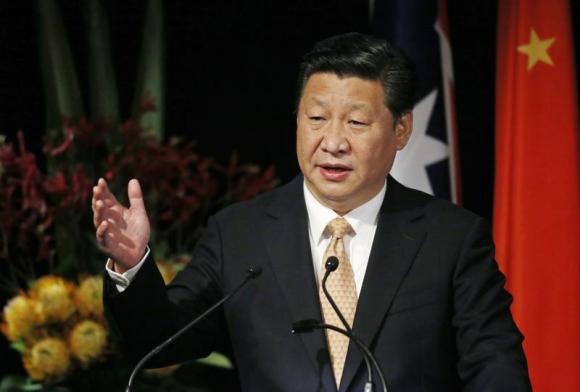In an update to disciplinary regulations that apply to all Chinese Communist Party members, punishment has been promised for the spreading of political rumors and for the practice of religion. The revised regulations come just before the sixth anniversary of Xi Jinping’s ongoing Party anti-corruption campaign. At Reuters, Ben Blanchard reports:
In the most serious cases where a law has been broken, party members can be prosecuted, but in many cases the most severe punishment that can be meted out is expulsion from the party.
[…] Party members are not allowed to speak out against central party policies or decisions, and nor can they spread “political rumors or damage the party’s unity”, the new rules say.
[…] Another new clause takes aim at party members who are also religious. While the country’s constitution guarantees freedom of religion the party is officially atheist and party members are supposed to be too.
“Party members who have religious belief should have strengthened thought education. If they still don’t change after help and education from the party organization, they should be encouraged to leave the party,” the new rules say.
Those who attend “activities that use religion for incitement” will be expelled, according to the rules. […] [Source]
Tandem to a well-documented religious revival in China, state efforts to repress religious observance have increased in recent years—most notably on Islam in Xinjiang, Buddhism in Tibet, and Christianity in a historically Christian region of Zhejiang (and online, where Beijing closed a loophole that allowed the sale of bibles in April). Last year, China’s Foreign Ministry criticized the U.S. for “interfering with the internal affairs of other countries” after China was included in the State Department’s International Religious Freedom report.
On Twitter, China Change’s Yaxue Cao shares a Party-crafted personal statement disavowing Christianity from a campaign in Henan and Anhui provinces, noting that this could be part of a wider drive:
This personal statement, provided by the CCP govt, is being implemented in Henan and Anhui (likely a national campaign): I don't understand Christianity, my faith in it is blind, now I know my spiritual needs better. From now on I will not take part in Christian activities… https://t.co/4bU15ghLre
— Yaxue Cao (@YaxueCao) August 24, 2018
David Cowhig shared his translation of the document, noting that it is currently unclear whether this is intended for Party members:
My English translation of the renunciation of Christian faith form that some Christians in Henan and Anhui Provinces are required to sign. No idea yet on how widespread this may be or whether this maybe aimed at Party members rather than all believers. https://t.co/rXVp4PWV4T pic.twitter.com/YL4CFpi28E
— 高大伟 David Cowhig (@gaodawei) August 26, 2018
Other additions to the regulations appear to be aimed at discouraging internal Party dissent to Xi Jinping’s policies, which has reportedly been fomenting amid economic uncertainty and on the heels of recent high-profile scandals. Like the Party and state constitutions, the revised regulations also now include Xi Jinping’s name and signature political theory. China Law Translate’s translation of the full document shows that “resolutely preserving General Secretary Xi Jinping’s status as the core of the Party Central Committee and the core of the entire Party” is now included in article two of 142.
Another of the newly-added clauses also specifically singles out “distorting the history of the Party, the PRC, or the military,” and comes months after the pasing of a law requiring “all of society” to honor CCP-approved revolutionary heroes. A campaign against “historical nihilism”—essentially any telling of history that challenges the “inevitability” of Chinese socialism—has been ongoing during Xi’s tenure.








